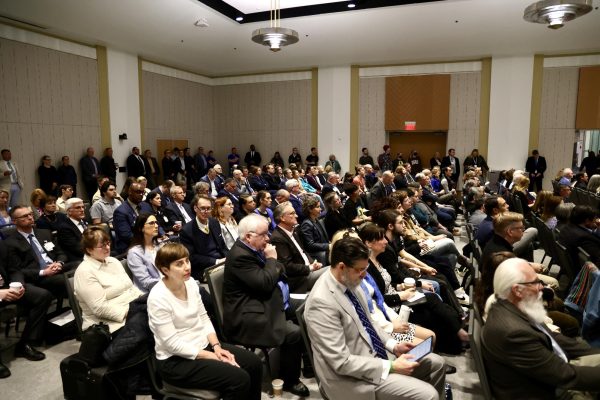Online classes see spike in students, earnings
November 15, 2010
In an effort to help students complete their degrees quicker, the new Summer 2010 online courses earned more than $1.5 million in tuition.
According to numbers supplied by the College of Arts and Sciences Dean’s Office, 29 new courses were added during the Summer 2010 session, including general education and upper division courses. On course census day, about 1,640 students were enrolled in these courses. Courses taught included Sociology 101, Philosophy 120, Biology 102, Political Science 391 and Anthropology 431.
Arts and Sciences Dean Mark Kornbluh, who led the effort for these added online classes, brought the idea from a similar one he was involved with while at Michigan State University. Kornbluh said the goal was to help students complete their degrees quicker, while still allowing out-of-state students or students wanting to return home for the summer to complete required hours or to retake a course. He said almost 5,000 credit hours were completed.
According to the data provided, 24 percent of the students enrolled in these online courses were undergraduate nonresidents.
“So this way they can go home, take a job and take a course or two to make progress towards a degree,” Kornbluh said.
According to the numbers provided, the total UK tuition income from the courses was $1,566,493, and the College of Arts and Sciences’ revenue sharing-cut of this was $939,896.
“The real goal is to increase student success and graduation rate and move graduation to four or five years rather than six years and beyond,” Kornbluh said.
He said the project involved hiring two full-time people to help with the online aspects, and numerous undergraduate and graduate students were hired to help with additional duties like putting materials online.
In an e-mail to the Kernel, UK spokesman Jay Blanton said the university does not have the final figures on expenses and revenues associated with starting up the new courses. He said, however, that student success, not revenue, was the primary focus of the project.
Blanton said the new courses were part of UK’s “war on attrition.”
“It’s been a very aggressive effort, directly aimed at improving retention and, ultimately, graduation rates. We’ve added more academic support services and intervention efforts with students, among other things, to help ensure student success,” Blanton said in the e-mail. “The results … have been promising. Retention is at an all-time high at 82 percent. Our expectation is that graduation rates, over time, will continue to improve as well.”
In an interview with the Kernel Wednesday, Nov. 3, UK Provost Kumble Subbaswamy, said distance-learning initiatives like the online summer courses show an expression of high ambitions and lead to better graduation rates.
Subbaswamy said UK needs to be more innovative.
“Students have a certain expectation with technology,” he said.
Kornbluh said another hope of adding courses like these was that professors would gain new knowledge too.
“One of the goals here is for faculty in the college to gain experience with using new technology,” he said. “So we’re hoping that what they learned in online classes, they’ll actually use some of those tools during their regular classes during the year.”
Associate professor in anthropology Lisa Cliggett taught an online summer course on sub-Saharan Africa. In an e-mail to the Kernel, Cliggett said it was her first time teaching an online course, and she said one main difference was “the very clear sense” she had of all her students.
“In a face-to-face class, students can hide (by not speaking during discussion, sitting at the back of class, and simply not attending),” she said in the e-mail. “In an online class, assignments require that students comment, engage and write about the material. So even for the quietest (or most likely to be “unengaged”) they must write something (or risk failing).”
Cliggett said the framework of writing online comments and ideas allows more time for thought and synthesis.
The number of these new online courses offered is expected to double by next summer, and Kornbluh said the College of Arts and Sciences is working with other colleges to add additional online summer courses.





















































































































































